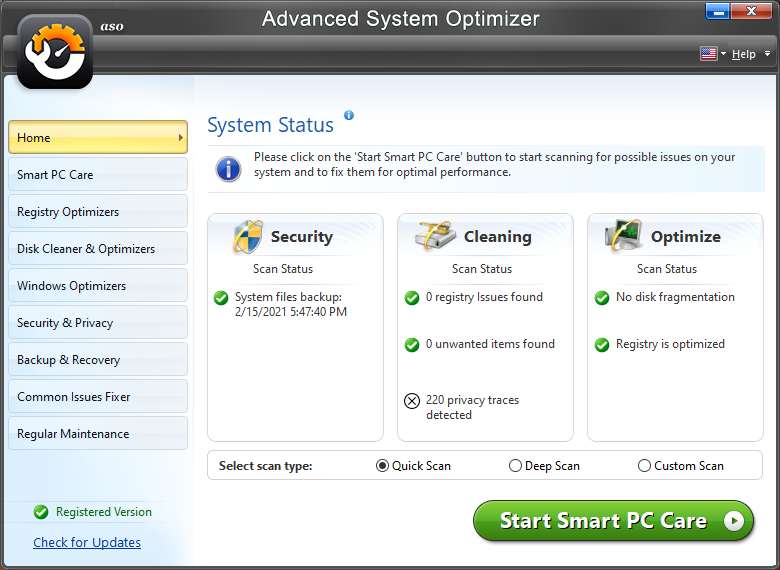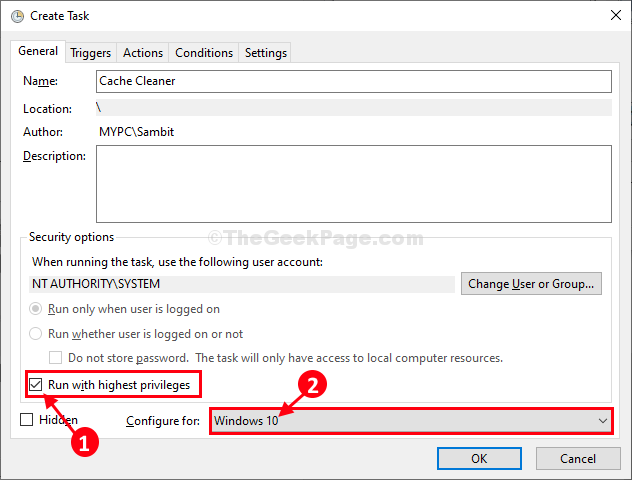Memory Cleaner is an amazing RAM cleaner software for Windows. It not only lets you boost RAM manually, but you can also set certain parameters to execute RAM cleaning automatically. It is very simple to use. You get two options to clean RAM: Trim Process and Clear System Cache. These options reduce RAM usage to boost PC performance. Here in this post, we will talk about How to clear memory cache on Windows computers. 5 Ways to Clear Memory Cache on Windows 10/8/7/Vista/XP It is necessary to clear cache the memory to fully utilize your CPU power. Cache memory causes lots of problems by occupying a huge amount of computer RAM (Random Access Memory). Ram Optimizer 😁 is a Powerful Ram & Cache Boosting app designed for Windows Phone, Which will optimize your phone faster🚀🚀. 😊😊😊😊 For maximum results you should Optimize your phone at least twice a day. Current Ram Usage.
RAM(Random-Access Memory) is an essential component of the computer, which is located in the motherboard of the PC. It is the place where the computer stores the short term data for quick access and use. With the help of RAM, the computer can execute tasks faster. When there is no enough RAM storage left, you might find that the PC slows down and performs worse. What can you do at this time? Next, we will share you 6 quick ways to clear RAM on the Windows 10 PC.
1. Restart Your Windows 10 PC
Restarting the PC is a common but effective fix for many computer issues, so is for the issue-insufficient RAM space. You can free up RAM on Windows 10 by rebooting the PC, which can help reset all the running programs and completely clear RAM.
2. Exit Unneeded Applications
Have a look at the desktop taskbar and does it show many open programs? If it does, don't hesitate to exit the unneeded application that can take up the precious RAM. Then you will find that the Windows 10 PC runs smoother than before.
3. Clear Memory Cache
There are different types of cache on the running Windows 10, which enables the system to respond quickly. But these cache can occupy a lot of memory sometimes. Luckily, they can be deleted by their own ways. You can remove DNS cache and Windows Store cache in CMD with the related command. To clean the cache of browsers like Google Chrome/Microsoft Edge/Firefox, you can easily do it in the browser's settings page. For the common cache, you can clear them with the tool iSunshare System Genius which works well on clearing Windows junk files including temporary files/data cache/font cache/thumbnail cache/manifest cache, etc. By using such a helpful tool, you can erase the general cache within a few clicks instead of deleting them in different places.
3 Steps to use System Genius
Step 1: Install iSunshare System Genius on your Windows 10 PC.
Step 2: Launch the tool and choose Junk File to get the Scan button. After that, hit Scan to scan Windows 10 for junk files.
Step 3: In the result section, uncheck the Junk file scan result option firstly. Then check temporary files and other cache items. At last, click Clean to wipe them from your system.
4. Close Unnecessary Background Programs
Although background programs can update themselves automatically, send you the notification, etc, it can consume the power, use the bandwidth and eat up system resources like RAM on the other side. So, you are highly recommended to only keep the needed background programs. To close the unnecessary background programs, you can follow the steps here.
Step 1: Enter Settings in the search bar and click it.
Step 2: Choose Privacy in the Settings window.
Step 3: Scroll down the left pane to access Background apps.
Step 4: Turn off the unnecessary programs.
5. Use Lighter Applications
Compared with their similar applications, some apps are better at managing memory. If your computer struggles with the specific program, you can try to find a lighter alternative for it. For example, you can use Google Chrome instead of Microsoft Edge if your computer crawls when running the Edge browser. In this way, you can free up RAM and get more available space on Windows 10.
6. Disable Rare-to-Use Startup Programs
There might be some startup programs on your Windows 10 computer. Some are set by yourself for convenience use and the others are enabled by default when they are installed. Actually, these startup programs can be the cause for the full RAM and it would be a good way to clear RAM on Windows 10 through regularly managing the startup programs and disable the rare-to-use one.
Step 1: Run Task Manager and click More Details in the lower-left corner of it.
Step 2: Switch to Startup in the upper menu and then find the needless programs to disable.
Besides, you can manage the startup programs in a more intuitive way, which is using iSunshare System Genius.
Related Articles:
Wednesday, April 19, 2017
by Vivian
Follow @WiseCleanerThere are many types of caches exist on some operating systems like windows 10. If your PC starts showing various kinds of issues, you’d better try clearing these stored caches to free up more space. here I will provide some simple methods on how to clear cache on your computer.
- Wise Care 365
- PC Cleaning and Speed up Tool
- Clean registry and junk files from your PCs. Protect your privacy and make your PCs more secure. Provide a better option for optimizing and accelerating your computer!
Suffering low disk space issue? Over time, there will be a lot of files accumulate in system caches, which can cause some issues for your computer. Clearing cache can not only make your PC run smoothly but also increase some free space. So I am writing here on how to clear cache on Windows 10.
Clear Browser’s Cache:
(1)Google Chrome
Go to the three-dot menu at the upper-right of Chrome to select'history' --> 'Clear browsing data' --> 'Cached images and files'.
(2)Internet Explorer
Like Google, Microsoft is also keeping some of your history online. Choose “Clear all history” on the upper right corner, and then check the item of “Cached data and files”.


Clear temporary files cache:

Step 1: Open the start menu, type “Disk cleanup”.
Step 2: Select the drive where your Windows is installed. It’s the C drive in most of the cases. It will take some time to analyze all the files.
Step 3: Under the disk cleanup box, check “temporary files” and click on “OK”.

Clear File Explorer History
Step 1: Click File Explorer icon on the taskbar.
Ram Cache Cleaner Windows 10 Cnet
Step 2: On open File Explorer Window click “View” -->”Option” at the top.
Step 3: Go to click 'Clear' and “OK” button.
Except for the above methods, you can also try Wise Care 365, which allows you to delete all types of caches including windows system cache, windows installer cache, google chrome cache, and other caches with one click.
More Related Articles You May Like
Ram Cache Cleaner Windows 10 Free
- How to Speed Up Your Computer Boot Time by Using Free Wise Care 365 Pro - The more programs in your boot list, the longer it may take to start up Windows. Wise Care 365 can help you to find out and disable these useless programs so that you can boot your computer fast.
- How to Clean Up Junk Files by Free Wise Care 365 Pro - Are there many junk files on your computer? After reading this article, you will know how to remove junk file from your PC in a quick way with our wise PC optimization tool.
- How to Clean Your Computer System with Wise Care 365 Pro - Is your computer running slow? As it gets older with collecting unused files or its settings take up hard drive space. Wise Care 365 can make your computer system completely clean and fast!
- How to Monitor Your System by Using Wise Care 365 Pro - If you are really conscious about your system’s performance then it is necessary that you should monitor it regularly. Using Wise Care 365 Pro, you can keep an eye on system resource usages of your PC and find out what is limiting your system performance.
- How to Optimize and Tune-up Your PC with Wise Care 365 Pro - Is your PC tired and sluggish? If you want a faster system, you could certainly break the bank and buy a new machine. Or you could read this article instead. Wise Care 365 can push your PC to work at optimum speed with the easy to use interface.
